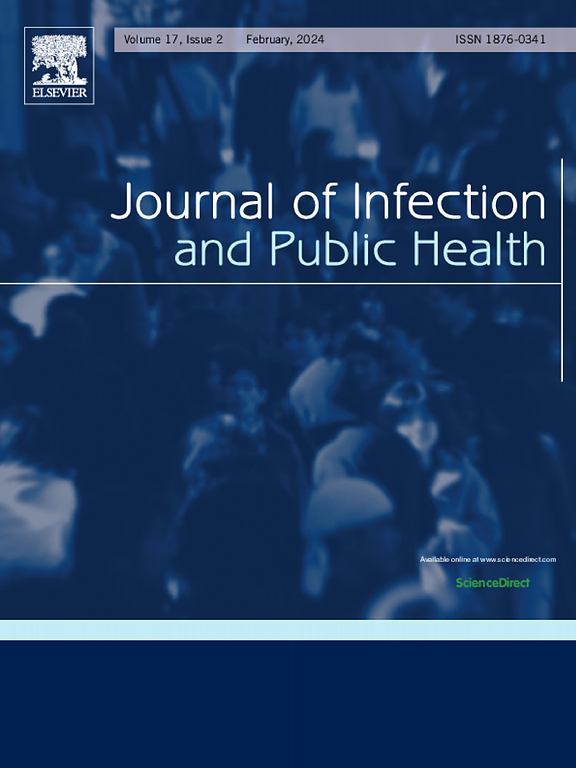The role of RCCE-IM in the mpox response: A qualitative reflection process with experts and civil society in three European countries
IF 4.7
3区 医学
Q1 INFECTIOUS DISEASES
引用次数: 0
Abstract
Background
Risk communication, Community Engagement and Infodemic Management (RCCE-IM) is a central pillar of emergency management. This study explored the experiences of experts and key stakeholders on RCCE-IM in the 2022–23 mpox response in their countries.
Methods
We used an exploratory qualitative research design and conducted semi-structured interviews with people actively involved in the mpox response in their country. Content analysis was used to analyze the interviews and identify themes, patterns, and underlying concepts.
Results
A total of 19 participants from Poland, Serbia and Spain were included in the study. RCCE-IM activities were broad-based, involving civil society organizations (CSOs) and affected communities in the co-creation and co-delivery of health information and advice, and ensuring that non-discriminatory language was used. Attitudes towards affected lesbian, gay, bisexual, transgender, queer or questioning, and intersex (LGBTQI+) communities played an important role in the response. Participants reported that stigma was present in all three countries and that it was often influenced by challenging social and political dynamics. These attitudes were often reinforced by the media. RCCE-IM activities were influenced by the ease or difficulty of obtaining financial support and the availability and accessibility of countermeasures, including vaccines. Participants identified groups that were vulnerable and difficult to reach and emphasized the intersectional character of vulnerabilities. CSOs played an important role in advocating for the protection of people in vulnerable situations and linking them to health services.
Conclusion
We have been able to demonstrate good practices and challenges of RCCE-IM in the mpox response in three selected European countries. A pre-existing network of CSOs and experts who belong to, serve and have an understanding of the affected communities form the basis of a successful public health emergency response.
rce - im在麻疹应对中的作用:与三个欧洲国家的专家和民间社会的定性反思过程
风险沟通、社区参与和信息管理(rce - im)是应急管理的核心支柱。本研究探讨了专家和主要利益攸关方在本国2022-23年麻疹应对方面的经验。方法采用探索性质的研究设计,并对积极参与本国麻疹应对工作的人员进行半结构化访谈。内容分析用于分析访谈并确定主题、模式和潜在概念。结果共有来自波兰、塞尔维亚和西班牙的19名参与者参与了这项研究。rce - im的活动基础广泛,民间社会组织和受影响社区参与共同创造和共同提供卫生信息和咨询,并确保使用非歧视性语言。对受影响的女同性恋、男同性恋、双性恋、变性人、酷儿或质疑者以及双性人(LGBTQI+)群体的态度在回应中发挥了重要作用。与会者报告说,耻辱现象在这三个国家都存在,而且往往受到具有挑战性的社会和政治动态的影响。这些态度经常被媒体强化。获得财政支助的难易程度以及包括疫苗在内的应对措施的可得性和可及性都影响到区域经济活动。与会者确定了易受伤害和难以接触的群体,并强调了脆弱性的交叉性。民间社会组织在倡导保护弱势群体和将他们与保健服务联系起来方面发挥了重要作用。结论:我们已经能够在三个选定的欧洲国家展示rce - im在麻疹应对中的良好做法和挑战。由属于受影响社区、为其服务并了解受影响社区的民间社会组织和专家组成的现有网络,是成功应对突发公共卫生事件的基础。
本文章由计算机程序翻译,如有差异,请以英文原文为准。
求助全文
约1分钟内获得全文
求助全文
来源期刊

Journal of Infection and Public Health
PUBLIC, ENVIRONMENTAL & OCCUPATIONAL HEALTH -INFECTIOUS DISEASES
CiteScore
13.10
自引率
1.50%
发文量
203
审稿时长
96 days
期刊介绍:
The Journal of Infection and Public Health, first official journal of the Saudi Arabian Ministry of National Guard Health Affairs, King Saud Bin Abdulaziz University for Health Sciences and the Saudi Association for Public Health, aims to be the foremost scientific, peer-reviewed journal encompassing infection prevention and control, microbiology, infectious diseases, public health and the application of healthcare epidemiology to the evaluation of health outcomes. The point of view of the journal is that infection and public health are closely intertwined and that advances in one area will have positive consequences on the other.
The journal will be useful to all health professionals who are partners in the management of patients with communicable diseases, keeping them up to date. The journal is proud to have an international and diverse editorial board that will assist and facilitate the publication of articles that reflect a global view on infection control and public health, as well as emphasizing our focus on supporting the needs of public health practitioners.
It is our aim to improve healthcare by reducing risk of infection and related adverse outcomes by critical review, selection, and dissemination of new and relevant information in the field of infection control, public health and infectious diseases in all healthcare settings and the community.
 求助内容:
求助内容: 应助结果提醒方式:
应助结果提醒方式:


